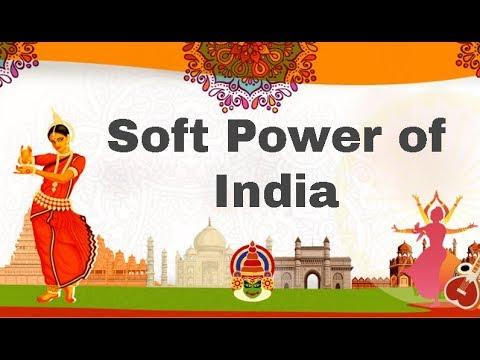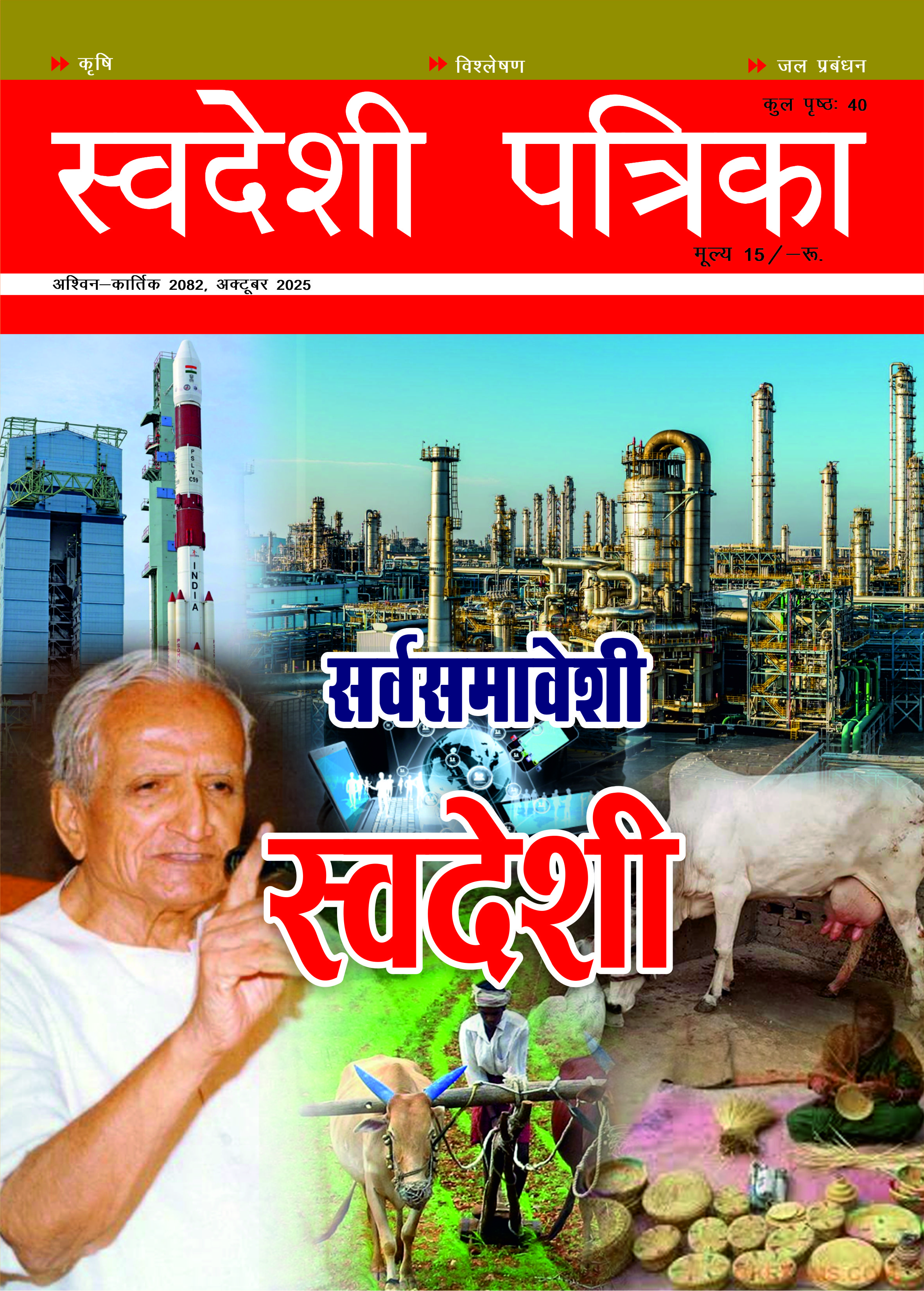
Economics of Soft Power
The Vishwa Vijay is also said to be a Vishwa Yagna in our soft power. It is not for the benefit of one but for the wellness of all. — Alok Singh
Soft power, a concept coined by political scientist Joseph Nye, is the ability of a nation to influence others through its culture, political values, and foreign policies rather than through military force. It is often considered more important than hard power, as it concerns things that need to be protected by hard power. If hard power is attained at the loss of soft power, it’s not worth bargain.
The soft power of any nation is its deep-rooted things that are responsible for its existence. The economy of the country revolves around its soft power. It’s about food, clothing, entertainment, beliefs, faiths, practices, education, sports, literature, the definition of family, values, and many more matters of daily life.
Economics has a role because wherever religious conversations happen today, they’re about economics and finances rather than swords, wars, and weapons.
Economics itself needs to be understood relatively. There is the economics of Naxalism, a term used to describe the economic and social conditions that led to the rise of Naxalite groups, politics, and the environment. In the same way, there is the economics of many things, including multiple soft powers.
The economics of temples and ways of life are easier to visualize. Hindus’ soft power may be transitional, but their core is universally stable. The formats developed and changed from Yagna to temples, and today, the definition of family itself is in a transition phase due to attacks by unfavorable soft power. The format of attacks is also changing. Economics is the principal motivation for wars and attacks.
The attacks on Hindutva can be chronological, from the attack on Holy Yagna during the early phases of civilization to the attack on the definition of family today. The Holy Yagna was the target of evil forces before and during Sri Ram’s era. Sri Ram has defended many Holy Yagnas in response to the demand for defense by Holy Rishis. These attacks, whether physical or ideological, have been a constant threat to the soft power of Hindutva.
The Holy Yagna coexisted with temples, and the attack changed its format. The Mughals started attacking temples, i.e., the attacks on the faith of Hindutva, starting from Ayodhya, Mathura, Kashi, and so on.
The next phase of the attack was by the Britishers, who attacked our education system and germinated the caste-based division of Hindutva. The economic framework of the society collapsed.
The new attack started in 1991 with the arrival of economic compulsion of blind acceptance of liberalization, privatization, and globalization. The education system and the dream of a corporate job in well-paying foreign companies, whether they are in the business of potato chips or computer chips, saw the weakening of Hindutva on the name and the path towards career growth, resulting in matching celebrations, practices and holidays by the faith of the foreign paymasters.
The current phase of the attack began with widespread access to social media and internet technology. While the primary idea was to provide transparent and real-time access to banking, documentation, information, and other services, our previous policymakers had already laid the foundation for foreign, primarily Western-influenced lifestyles. The current policymakers are working to control and steer this influence toward the Bhartiya way. The urgent need for Indigenous social media platforms is clear, as they are a necessity to shield against this latest attack.
Unfortunately, our social leaders, academicians, journalists, and centers of soft power like movies, theatres, literature, and others have fallen into the hands of foreign players. Our competitor has done relatively well on this front.
China could defend its turf of soft power. China has its share of challenges in saving its civilization and culture. Even in the education sector, China could defend the way Western Universities teach Chinese culture and history. However, Western Universities teach Bhartiya Culture and history at their convenience, which is an attack on our soft power. Even in science and technology, like astronomy, our Vedic resources are deciphered and presented to us as Western knowledge, which is an attack on our soft power.
The country’s current prime minister, a strong advocate for the relevance of soft power, has consistently showcased the nation’s soft power to the world. He has actively participated in every micro and macro event and has cashed on the opportunity to strengthen it, instilling a sense of pride in the audience.
The background of Nalanda University in the concluding G-20 meeting in 2023 at Bharat Mandapam, New Delhi, caught the most attention. The Prime Minister received all the heads of foreign states and organized the photo shoot so that the ruins of Nalanda University today are well captured in the memory of global leaders.
The Prime Minister of our country knows well that China has shielded itself from Western or any foreign cultural attacks. Still, our intellectual class, academicians or journalists, business class, and soft power have damaged it consistently for the last several years.
This demonstration of soft power and the declaration of the International Day of Yoga are well poised to establish us as Vishwa Guru. Our soft power is regaining its due relevance.
We always wished to be Vishwa Gurus and never to be Vishwa Rajas, although we worship and celebrate the tradition of Ashvamedha Yagna. This Yagna performed by Sri Ram resulted in occasional obstacles, which we labeled as a conflict that wouldn’t be good; these obstacles were for the good of everyone.
The Vishwa Vijay is also said to be a Vishwa Yagna in our soft power. It is not for the benefit of one but for the wellness of all.
Despite many attacks, we could survive, and the survival of soft power is our survival rather than hard power. The current prime minister is engaging it well in the country through sports like Khelo-India or foreign policy like the International Day of Yoga.
Joseph Nye of Harvard University coined “soft power” in 2012, but our behavior and ideas have always favored soft power. qq
(Alok Singh has a doctorate in management from the Indian Institute of Management Indore and is the promoter of Transition Research Consultancy for Policy and Management).


